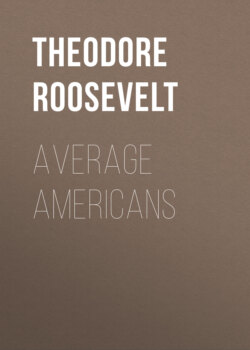Читать книгу Average Americans - Theodore Roosevelt - Страница 5
На сайте Литреса книга снята с продажи.
CHAPTER II
ОглавлениеTable of Contents
SINS OF THE FATHERS
"Sons of the sheltered city—
Unmade, unhandled, unmeet—
Ye pushed them raw to the battle
As ye picked them raw from the street.
And what did ye look, they should compass?
Warcraft learned in a breath,
Knowledge unto occasion
At the first far view of death?"
Kipling.
WHILE we were personally working at Plattsburg the national administration, after a meandering course, in which much of the motion was retrograde, had finally decided that to fight a war in France it was necessary to send troops to that part of the world. Out of this determination Pershing's force grew.
Investigation of the condition of our military establishment indicated that we had virtually nothing available. The best that could be done in the way of an expeditionary force was to group two regiments of marines and four regular regiments together and send them to Europe as the First Division. So little attention and thought had been given to military matters that when the First Division was originally grouped it consisted of three brigades, not two. These brigades consisted of the Fifth and Sixth Marines, Twenty-sixth and Twenty-eighth Infantry, and the Sixteenth and Eighteenth Infantry. In the regiments themselves things were in the same chaotic condition. Battalions contained three companies of infantry and one machine-gun company each. This was an eleventh-hour change from the old system of four companies of infantry, to which we returned later in the year. We had, furthermore, up to this time, by our tables of organization, companies of 152 men. These companies were raised to 200 men, and still later became 250.
As a matter of fact, the strength of these companies at the declaration of war was somewhere around sixty. The 140 additional were obtained by getting a percentage by transfer from other infantry regiments, and filling in the balance with raw recruits who had just volunteered for service.
My own regiment, the Twenty-sixth Infantry, entrained early in June at San Benito, Texas, and came to the port of embarkation, New York City. The trip always stands out in my mind, although I did not join the regiment until after it had arrived in Europe, because all through the two years of war I was pestered by a paper which kept constantly turning up concerning some $100 worth of ham and cheese that was supposed to have been eaten by the men of the Twenty-sixth Infantry as they passed through Houston. No one was ever able to furnish me with any information as to it, but in the best approved military style the communication kept circulating to and fro, indorsement after indorsement being added, until, when I last saw it, January, 1919, after the war was finished, there were some twenty-eight series of remarks, and no one was any the wiser.
A story that always appealed to me was told me by one of my officers, of the time when the troop train was lying in the Jersey marshes waiting to go on board ship. A very good officer, Arnold by name, had command of one of the companies of the Twenty-sixth Infantry. A number of lieutenants were sent from the training camps to join the First Division. The military knowledge of the lieutenants consisted in the main of a month at Plattsburg at their own expense, and a month for which the government paid. The lieutenants, after getting to New York, had their uniforms pressed and cleaned and their shoes beautifully polished, feeling that at least they would look the part. They went out to join the troops, who were lying in the cars, hot, dirty and uncomfortable, after traveling for four days. Arnold was sitting with his company, his blouse off, unshaven, with his feet on the seat in front of him. One of the nice young lieutenants came in to report to him looking, as the lieutenant himself told me afterward, like a fashionable clothes advertisement, and knowing about as much about military matters as a canary bird.
